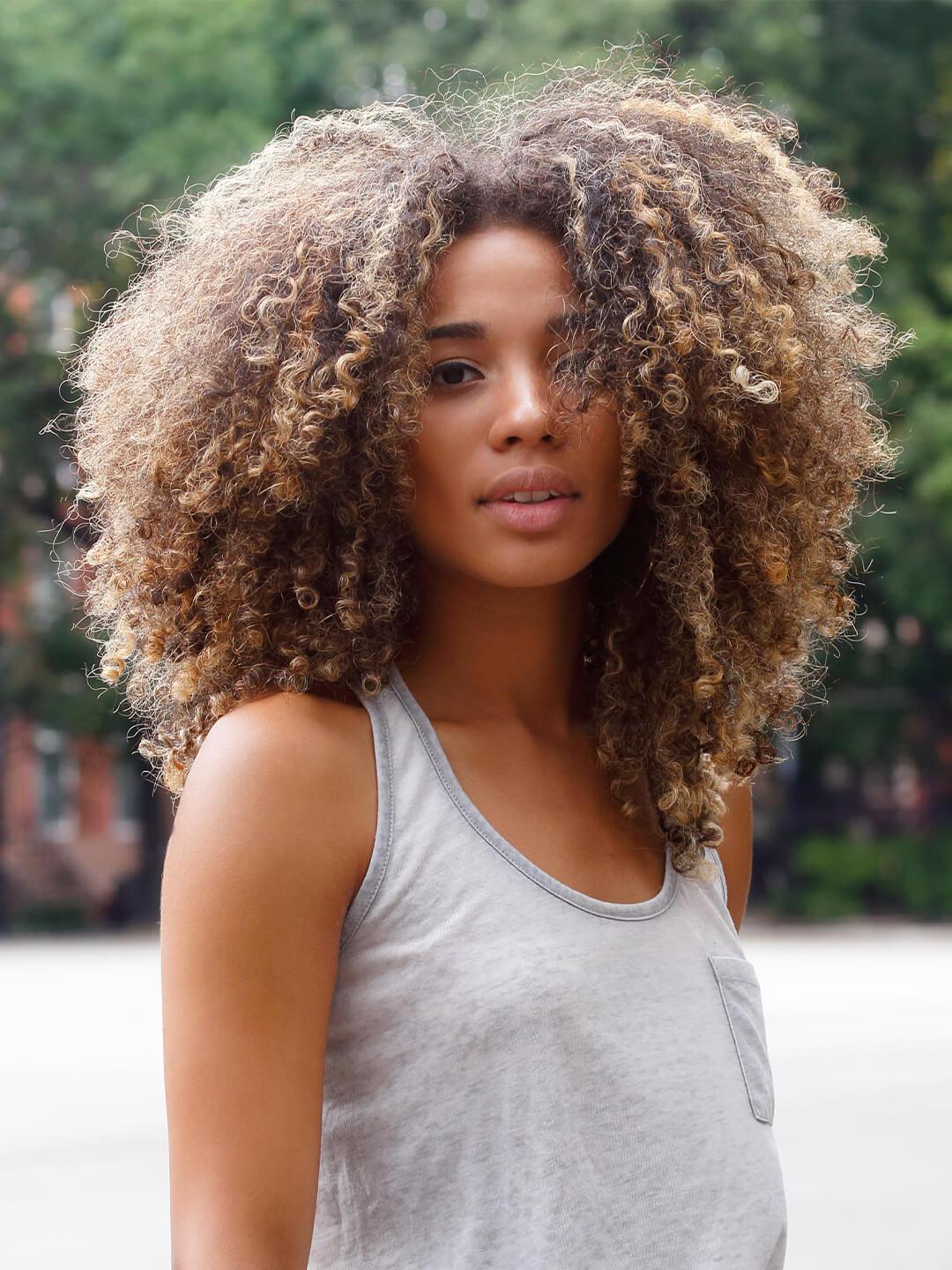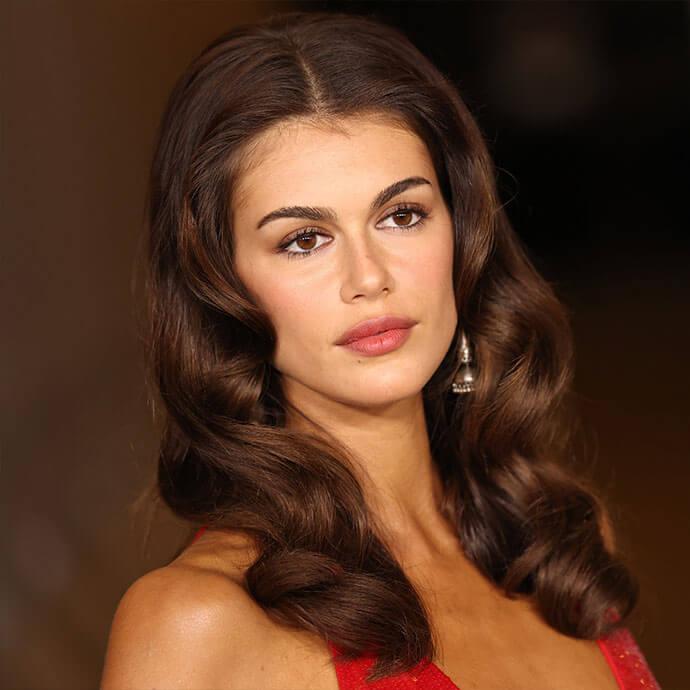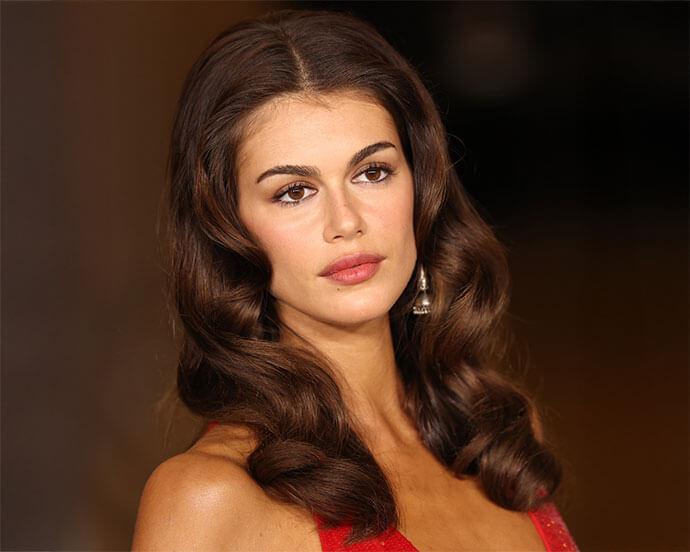Feel Like Your Natural Hair Is Growing Slowly? These Pro-Approved Tips Can Help



Elizabeth Denton


Naturalistas know the struggle. When your natural hair is brittle and damaged, it can get it in the way of length retention. Most days, it feels like your hair is never going to grow—but we’re here to tell you that it can and it will! You just have to ensure you’re taking care of your strands to the best of your ability and using the right products for your hair type. Whether you have wavy, curly, coily, or kinky hair, you can get the hair growth you want without the breakage. We promise.
Breakage can be traumatic and a pain to manage, but healthy hair is definitely within reach as long as you can spot the culprit of your hair challenges. Are you overprocessing your hair with chemicals? Using too many hot tools? Not using the right hydrating products? All of these things can lead to breakage and keep your hair from growing. If you’re dealing with split ends, knots, and tangles, your hair probably isn’t as healthy as it can be.
To find out how to support natural hair growth, we chatted with hairstylist, salon owner, author, and healthy-hair educator Annagjd “Kee” Taylor. Kee teaches people of all ages, but especially young girls, to love their natural hair because “all hair is good hair.” She knows all about hair care—especially natural hair care—and taught us all the ways to get your kinks and curls on track.


It's about glam time you treated yourself.
MEET THE EXPERT
Annagjid “Kee” Taylor is a Philadelphia-based hairstylist, salon owner, healthy-hair educator, and author.
How to grow your natural hair, fast:
1. Lay off the hot tools.
No matter your hair type, overuse of flat irons, hair dryers, and curling irons can lead to serious heat damage—but those with natural hair that tends to be on the more brittle side have to be especially careful. “If your main goal is growth, I would recommend laying off any heat styling and chemical processing,” says Kee. “Anytime you're manipulating your hair, especially via heat, you're inevitably causing some damage and drying the strands out, which leads to breakage.”
It helps to use a heat protectant such as a hair oil if you need to use a hot tool. Keep the temperature low and never go over the same spot twice. Still, if hair growth is what you’re after and you’re really in it for the long haul, you’re better off avoiding heat altogether.
2. Make deep conditioner your BFF.
The benefits of deep conditioner cannot be overstated. “Keeping the hair well-moisturized means it will stay healthier longer and will help to prevent breakage caused from drying out,” explains Kee. “I like using a hair mask that's also keratin-infused to help keep the hair as healthy as possible. The proteins mimic the proteins found naturally in the strands, so it can help fill in any gaps from existing damage.”
Use a deep conditioner weekly with a plastic cap in the shower or under a hair dryer. Or, if you’re able to head to the salon, give your hair an extra boost of hydration with a steam treatment. Either way, deep conditioning is key to avoiding breakage and keeping your coils tangle-free.
3. Get regular trims.
It might seem counterproductive to get a haircut when you’re trying to grow out your hairstyle, but getting regular trims is a big part of healthy hair. “If you are prone to split ends, it's best to get those trimmed off regularly while you're trying to grow your hair out,” says Kee. “Leaving your split ends is only going to cause more damage, making it harder to achieve more length.”
Chat with your hairstylist and make sure they know you’re working on growing out your natural hair. Don’t worry: You likely won’t have to do a big chop, as your stylist can recommend the amount of damage that should be removed without losing too much length. We know, it’s hard not to get attached to our hair length, but try not to hold onto those split ends for too long—they’ll only contribute to breakage in the long run.
4. Read up on the LOC method.
You know how important moisturizing is to healthy hair. The LOC method is a great way to ensure that the styling products you’re using are helping keep strands hydrated. LOC is a mnemonic to help you remember the order of styling products: liquid, oil, and then cream. “It’s great for those who have high porosity who are trying to maintain as much moisture as possible, which as you know is essential for improving hair growth,” says Kee. “The LOC method is a great way to seal that moisture in and keep your strands nourished and hydrated.”
Whether you use coconut oil, avocado oil, shea butter, or numerous other styling products, curly hair and coily strands that have trouble retaining moisture will benefit from this popular method.
5. Rock a protective style.
“Protective styles are just what they sound like: a great way to give your hair a break from all the manipulation, styling, and products,” explains Kee. “Protective styles can be a great way to give your hair a minute to breathe while you're growing it out. Just be sure to keep the hair and scalp well-moisturized while it's in a protective style.” She means it, too. It’s important that you don’t put your hair into a killer protective style just to forget to maintain it. Make sure those baby hairs are moisturized!
A good protective style should protect your hair, of course, but it should also help you maintain a healthy scalp with oils and hydrating butter. Whether you’re rocking bantu knots, braids, short twists, cornrows, or a simple high bun, keeping your hair in one style will help minimize breakage.
6. Try castor oil.
Kee loves using Jamaican black castor oil on both her and her clients’ hair. “This super conditioning ingredient has been hailed as great for hair growth for many years,” she says. “I love using it anytime I'm wearing my hair in a protective style or trying to grow my hair. You can buy it on its own or look for products formulated with it.”
Not only does Jamaican black castor oil promote healthy and faster hair growth, its fans also swear it helps prevent hair breakage, dandruff, eczema, and even a dry, itchy scalp. Keep some on hand to help keep your protective style hydrated.
7. Switch out your cotton towel.
A cotton towel might be fine for your body, but it can strip the moisture out of your hair. Skip the regular towels altogether when it comes to your natural hair. Instead, use a microfiber towel (sold at many retailers or beauty supply stores) or even an old T-shirt to help reduce frizz and help minimize breakage. Microfiber helps absorb moisture without damaging the hair cuticle, which can lead to more flyaways and, eventually, split ends.
8. Sleep on silk.
It might sound a little extra at first, but using a silk pillowcase or wrapping your hair in a satin scarf is essential for natural hair. Cotton fibers from your regular ’ol pillowcases can rub against your hair while you sleep, causing friction and damaging hair cuticles further. You’ll be amazed at how a silk pillowcase and scarf can minimize breakage, split ends, frizz, and even the dreaded bedhead. “It's important to wrap your hair away at night in a silk scarf or wrap, especially if you're trying to grow your hair out,” agrees Kee. “Unlike cotton, hair slides on silk without friction, so it's much less damaging on the hair. It also helps the hair retain its moisture.” Up next? Long, healthy hair you’ll want to show off.
Want in on all the Glam Bag fun? Take our Beauty Quiz now to get started. Already an Ipster? Refer your friends to earn points, which you can use toward products. Either way, don’t forget to check us out on Instagram and Twitter @IPSY.
Liked this post? Share!
Related Stories


Hair
6 Hair Trends Set to Take Over in 2026, From Bixie Cuts to Bouncy Blowouts
Published on Dec 5, 2025 • 5 min read


Hair
21 Easy Hairstyles to Enhance Your Natural Curls and Coils
Published on Dec 3, 2025 • 11 min read


Hair
The Ultimate Guide to Styling Short Hair
Published on Dec 1, 2025 • 11 min read


Hair
From Bangs to Blonde: The Hair Trends Taking Over 2025
Published on Dec 16, 2024 • 5 min read


Hair
Scalp Exfoliation Is the Key to Healthier Hair—Here’s How to Do It Correctly
Published on Nov 21, 2025 • 9 min read


Hair
The 10 Best Hair Masks and Conditioners to Promote Hair Growth
Published on Mar 11, 2024


Hair
20 Trendy Hairstyles That’ll Make You the Life of the (Holiday) Party
Published on Oct 15, 2025 • 9 min read


Hair
Easy Thanksgiving Hairstyles to Look Polished While You Feast
Published on Oct 2, 2025 • 6 min read


Beauty Picked Just for You
Get 5 products worth up to $70
Plus exclusive access to epic deals up to 80% off
Starting at just $14/month. Cancel anytime.